1,692.00$
Embark on a transformative journey with our exceptional range of medical treatments. As a leading medical tour operator, we offer a comprehensive selection of world-class treatments and procedures to address your unique healthcare needs. From advanced surgeries to cutting-edge therapies, our team of experienced professionals is dedicated to providing top-notch care and ensuring your comfort and satisfaction. Discover a new level of healthcare excellence with our tailored treatment options. Book now to start your journey towards a healthier and happier you.
Closed Rhinoplasty, also known as endonasal rhinoplasty, is a surgical technique used to reshape and improve the appearance of the nose. Unlike open rhinoplasty, all incisions are made inside the nose, resulting in no visible external scarring. Here is some information about Closed Rhinoplasty based on the search results:
During a Closed Rhinoplasty procedure, the surgeon makes incisions inside the nostrils, allowing access to the nasal structures. Through these incisions, the surgeon can modify the bone, cartilage, and soft tissues of the nose to achieve the desired aesthetic outcome. The surgeon may use techniques such as cartilage reshaping, removal of excess tissue, or grafting to enhance the shape, size, and symmetry of the nose. The incisions are then closed with dissolvable sutures.
Closed Rhinoplasty is suitable for individuals who require minor to moderate changes to the appearance of their nose. It can address concerns such as a dorsal hump, nasal tip refinement, or correction of nasal asymmetry. This technique is generally suitable for patients who do not require extensive modifications to the nasal structure.
Closed Rhinoplasty may not be suitable for individuals who require significant changes to the nasal structure or have complex nasal deformities. In such cases, an open rhinoplasty approach, which provides better visibility and access to the nasal anatomy, may be more appropriate. Additionally, patients with severe breathing difficulties or functional issues may require a different surgical approach.
No Visible Scarring: One of the main advantages of Closed Rhinoplasty is that all incisions are made inside the nose, resulting in no visible external scarring.
Faster Recovery: Since the surgical approach is less invasive compared to open rhinoplasty, the recovery time is often shorter. Swelling and bruising may be reduced, leading to a quicker return to normal activities.
Preservation of Nasal Support: Closed Rhinoplasty allows for preservation of the nasal support structures, such as the nasal bones and cartilage, which can contribute to long-term stability and natural-looking results.
Reduced Surgical Time: The closed approach typically requires less surgical time compared to open rhinoplasty, which can be advantageous for both the surgeon and the patient.
As with any surgical procedure, Closed Rhinoplasty carries potential risks and complications. These can include:
Postoperative Deformities: Postoperative deformities, such as a pollybeak deformity (a fullness or convexity in the supratip area), can occur if the preoperative analysis or surgical technique is inadequate.
Revision Surgery: In some cases, revision surgery may be necessary if the desired aesthetic or functional outcomes are not achieved.
It’s important to note that complications are generally rare, and the overall success of the procedure depends on various factors, including the surgeon’s skill and the patient’s individual healing process.
Preoperative care for Closed Rhinoplasty may include:
Consultation: Schedule a consultation with a qualified plastic surgeon to discuss your concerns, goals, and expectations for the procedure. The surgeon will evaluate your nasal anatomy and determine if Closed Rhinoplasty is suitable for you.
Medical Evaluation: Your surgeon may require a medical evaluation, including laboratory tests and a physical examination, to ensure you are in good health for the surgery.
Discussion of Expectations: It is important to have a thorough discussion with your surgeon about your desired outcomes and any limitations or risks associated with the procedure.
Postoperative care for Closed Rhinoplasty may include:
Dressing and Incision Care: Follow your surgeon’s instructions regarding the care of any dressings or splints applied after the surgery. Keep the incision site clean and dry as directed.
Pain Management: Your surgeon may prescribe pain medication to manage any discomfort or pain. Follow the prescribed dosage and instructions.
Activity Restrictions: Avoid strenuous activities and follow your surgeon’s guidelines on when you can resume normal activities.
Follow-up Appointments: Attend all scheduled follow-up appointments with your surgeon to monitor your healing progress and address any concerns or questions you may have.
Only logged in customers who have purchased this product may leave a review.
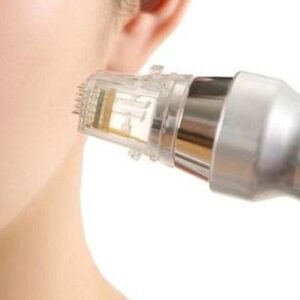
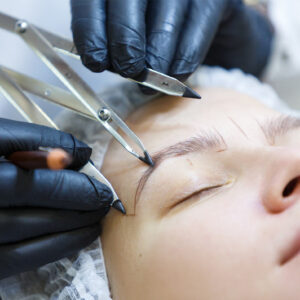
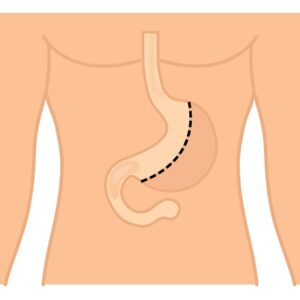
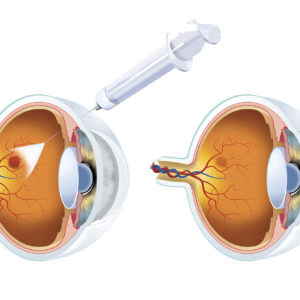
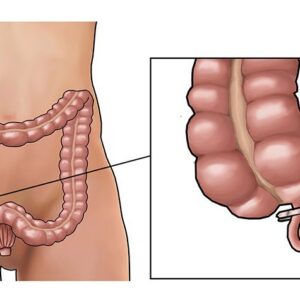
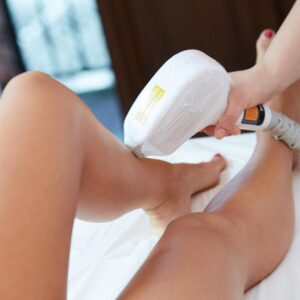
Closed Rhinoplasty, also known as endonasal rhinoplasty, is a surgical technique used to reshape and improve the appearance of the nose. Unlike open rhinoplasty, all incisions are made inside the nose, resulting in no visible external scarring. Here is some information about Closed Rhinoplasty based on the search results:
During a Closed Rhinoplasty procedure, the surgeon makes incisions inside the nostrils, allowing access to the nasal structures. Through these incisions, the surgeon can modify the bone, cartilage, and soft tissues of the nose to achieve the desired aesthetic outcome. The surgeon may use techniques such as cartilage reshaping, removal of excess tissue, or grafting to enhance the shape, size, and symmetry of the nose. The incisions are then closed with dissolvable sutures.
Closed Rhinoplasty is suitable for individuals who require minor to moderate changes to the appearance of their nose. It can address concerns such as a dorsal hump, nasal tip refinement, or correction of nasal asymmetry. This technique is generally suitable for patients who do not require extensive modifications to the nasal structure.
Closed Rhinoplasty may not be suitable for individuals who require significant changes to the nasal structure or have complex nasal deformities. In such cases, an open rhinoplasty approach, which provides better visibility and access to the nasal anatomy, may be more appropriate. Additionally, patients with severe breathing difficulties or functional issues may require a different surgical approach.
No Visible Scarring: One of the main advantages of Closed Rhinoplasty is that all incisions are made inside the nose, resulting in no visible external scarring.
Faster Recovery: Since the surgical approach is less invasive compared to open rhinoplasty, the recovery time is often shorter. Swelling and bruising may be reduced, leading to a quicker return to normal activities.
Preservation of Nasal Support: Closed Rhinoplasty allows for preservation of the nasal support structures, such as the nasal bones and cartilage, which can contribute to long-term stability and natural-looking results.
Reduced Surgical Time: The closed approach typically requires less surgical time compared to open rhinoplasty, which can be advantageous for both the surgeon and the patient.
As with any surgical procedure, Closed Rhinoplasty carries potential risks and complications. These can include:
Postoperative Deformities: Postoperative deformities, such as a pollybeak deformity (a fullness or convexity in the supratip area), can occur if the preoperative analysis or surgical technique is inadequate.
Revision Surgery: In some cases, revision surgery may be necessary if the desired aesthetic or functional outcomes are not achieved.
It’s important to note that complications are generally rare, and the overall success of the procedure depends on various factors, including the surgeon’s skill and the patient’s individual healing process.
Preoperative care for Closed Rhinoplasty may include:
Consultation: Schedule a consultation with a qualified plastic surgeon to discuss your concerns, goals, and expectations for the procedure. The surgeon will evaluate your nasal anatomy and determine if Closed Rhinoplasty is suitable for you.
Medical Evaluation: Your surgeon may require a medical evaluation, including laboratory tests and a physical examination, to ensure you are in good health for the surgery.
Discussion of Expectations: It is important to have a thorough discussion with your surgeon about your desired outcomes and any limitations or risks associated with the procedure.
Postoperative care for Closed Rhinoplasty may include:
Dressing and Incision Care: Follow your surgeon’s instructions regarding the care of any dressings or splints applied after the surgery. Keep the incision site clean and dry as directed.
Pain Management: Your surgeon may prescribe pain medication to manage any discomfort or pain. Follow the prescribed dosage and instructions.
Activity Restrictions: Avoid strenuous activities and follow your surgeon’s guidelines on when you can resume normal activities.
Follow-up Appointments: Attend all scheduled follow-up appointments with your surgeon to monitor your healing progress and address any concerns or questions you may have.
There are no reviews yet.
Only logged in customers who have purchased this product may leave a review.
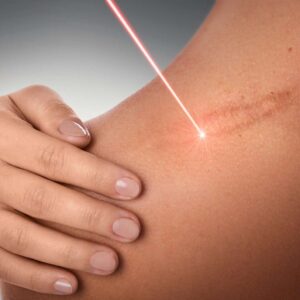

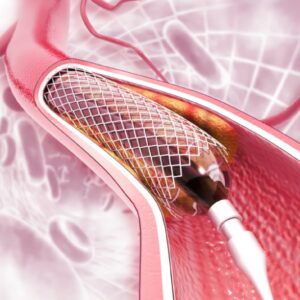

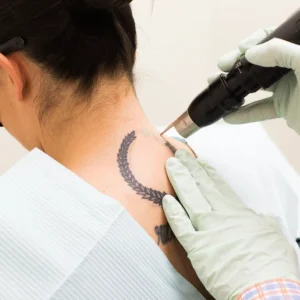

Choosing the right hospital and physician are important factors to consider that significantly influence a patient’s treatment. The preferred choice for many patients is choosing private care.
Choosing the right hospital and physician are important factors to consider that significantly influence a patient’s treatment.
Reviews
There are no reviews yet.